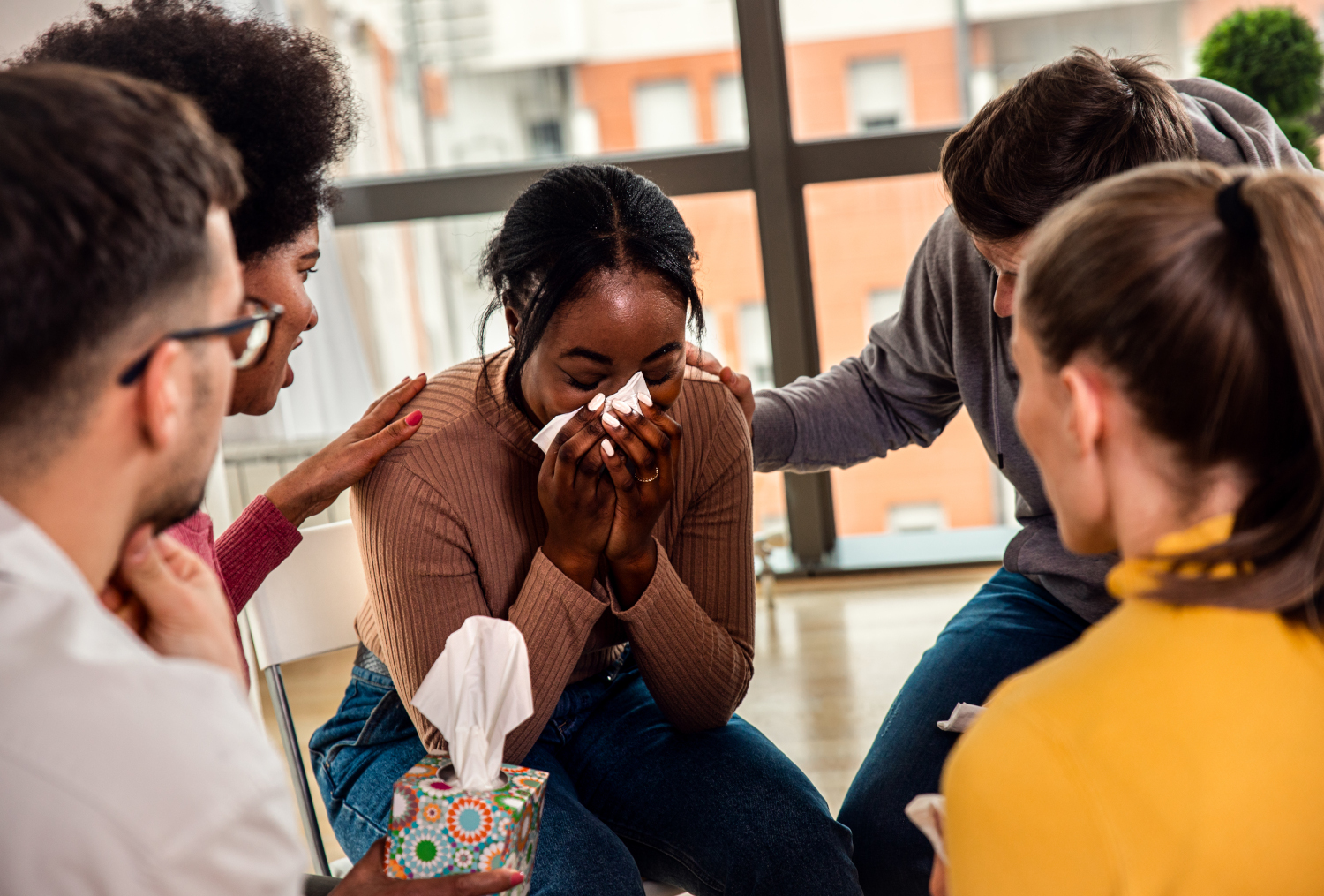10 Most Common Triggers of Substance Abuse Relapse

Recognizing the common triggers that lead to substance abuse relapse is crucial for maintaining long-term recovery. Here are the ten most common triggers and how to manage them effectively:
- Withdrawal Symptoms: Anxiety, nausea, and physical weakness can be challenging to manage without substances.
- Post-Acute Withdrawal Symptoms: Persistent symptoms such as anxiety, irritability, mood swings, and poor sleep can linger and trigger relapse.
- Poor Self-Care: Neglecting stress management, nutrition, and sleep can undermine your recovery.
- People: Interacting with old using friends can trigger cravings and relapse.
- Places: Being in locations where you used to use or buy drugs can evoke strong urges.
- Things: Objects associated with past substance use can act as powerful reminders.
- Uncomfortable Emotions: Feelings of hunger, anger, loneliness, and tiredness (H.A.L.T.) can lead to cravings.
- Relationships and Sex: Stress from relationship issues can trigger the desire to use substances as a coping mechanism.
- Isolation: Spending too much time alone can lead to overthinking and increased risk of relapse.
- Pride and Overconfidence: Believing that you no longer have a problem or that you are invincible can lead to risky behaviors.
The Stages of Relapse
Relapse is a process rather than a single event, beginning weeks or even months before the actual physical relapse. Understanding these stages can aid in relapse prevention:
1. Emotional Relapse
In this stage, you’re not actively thinking about using, but your emotions and behaviors set the stage for a potential relapse. Signs of emotional relapse include:
- Anxiety
- Intolerance
- Anger
- Defensiveness
- Mood swings
- Isolation
- Not asking for help
- Not attending meetings
- Poor eating habits
- Poor sleep habits
Early Relapse Prevention: Recognize when you are in emotional relapse and change your behavior. Practicing self-care is crucial. Engage in relaxation techniques, maintain a healthy diet and sleep schedule, and reach out for support to avoid progressing to the next stage.
2. Mental Relapse
This stage involves a mental struggle between wanting to use and wanting to stay sober. Early mental relapse includes fleeting thoughts of using, while later stages involve active planning for relapse. Signs of mental relapse include:
- Thinking about people, places, and things associated with past use
- Glamorizing past substance use
- Lying
- Spending time with old using friends
- Fantasizing about using
- Planning a relapse around other people’s schedules
Techniques for Dealing with Mental Urges:
- Play the Tape Through: Visualize the consequences of using.
- Tell Someone: Share your urges with a friend or support person.
- Distract Yourself: Engage in activities like calling a friend, going to a meeting, or taking a walk.
- Wait for 30 Minutes: Most urges last less than 30 minutes.
- One Day at a Time: Focus on staying sober today, not forever.
- Make Relaxation a Priority: Practice relaxation to avoid falling into old habits.
3. Physical Relapse
Once you start thinking about using and don’t intervene, it’s a short step to physical relapse: going to get a drink or calling your dealer. It’s much harder to stop the process at this stage.
Focus on Early Prevention: Recognize early warning signs and understand post-acute withdrawal symptoms to catch yourself before reaching physical relapse.
Relapse Prevention Strategies
- Identify and Avoid Triggers: Be aware of situations, people, and emotions that trigger cravings.
- Maintain Self-Care: Prioritize your physical and mental health.
- Stay Connected: Regularly attend support meetings and stay in touch with your support network.
- Develop Healthy Coping Mechanisms: Find activities that provide relaxation and satisfaction without substances.
- Plan Ahead: Have a strategy for dealing with cravings and difficult situations.
Cannabis Use as a Hidden Relapse Pathway in Recovery
For many in recovery, cannabis can feel like a loophole. It’s legal in many places, culturally accepted, and often marketed as medicinal. Compared to the chaos of harder substances, smoking a joint seems harmless. But beneath that surface lies a deeper issue: using weed to avoid pain, stress, or emotional discomfort mirrors the same patterns that led to addiction in the first place. It’s not always the substance—it’s the intention behind it. When cannabis becomes the go-to coping mechanism for anxiety, loneliness, or boredom, it stops being recreational and starts becoming a quiet return to compulsive behavior.
Mental relapse doesn’t always announce itself with cravings for heroin, meth, or booze. Sometimes it starts with a puff of weed rationalized as a way to sleep better or “just unwind.” The same brain circuitry that drove old addictions responds to that hit. You might not call it a relapse—but your nervous system doesn’t care about semantics. Reconnecting with the ritual of getting high—grinding, rolling, lighting—can trigger muscle memory and old associations. Over time, this can reopen the neural grooves of addiction, blurring the line between recovery and regression.
In recovery circles, cannabis use is becoming more common—especially among younger people raised in the era of legal weed. Social media is full of wellness influencers touting CBD tinctures and THC gummies as self-care. But for someone with a history of addiction, this normalization can be dangerous. It encourages self-medication while sidelining the work of true emotional healing. Instead of facing discomfort, trauma, or disconnection, weed becomes the cushion. And once the brain learns it can escape again, the door to full-blown relapse quietly creaks open.
Changes Rehab Helps You Avoid Relapse — Or Overcome It
Even if relapse seems imminent, it doesn’t have to define your recovery journey. Recognizing the warning signs early and taking proactive steps can help you stay on track. At Changes Rehab, we offer a holistic approach to rehab, providing you with the tools to understand and prevent relapse. And if a relapse does occur, our Chronic Relapse Program is here to help you regain control and continue your path to sobriety.
